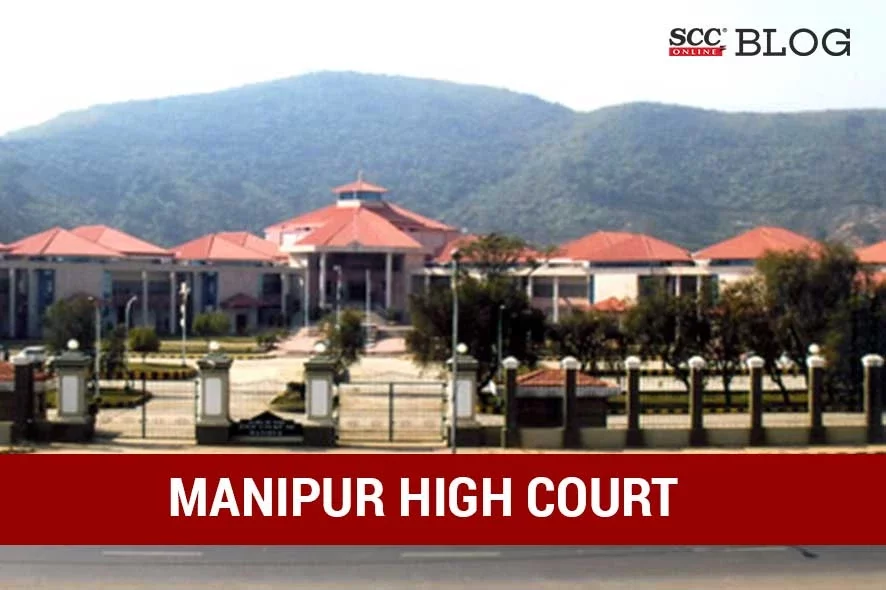Manipur High Court: In a civil writ petition filed by a retired employee (‘petitioner’) for seeking a writ of mandamus with a direction to the State of Manipur, District Treasury Officer, Imphal and Accountant General, Manipur (‘respondents’) for payment of the enhanced Gratuity amount and arrear Commutation to the petitioner, A. Guneshwar Sharma, J. allowed the writ petition and directed the respondents to release the enhanced amount of Gratuity and arrear of Commutation within a period of two months.
In the matter at hand, the petitioner who was working as UDA in the establishment of District and Sessions Judge, Thoubal retired from service on 28-02-2018 on attaining the age of superannuation. The office of Accountant General, Manipur issued the Revised Authority of pension in respect of the petitioner and the State respondents had to pay a sum of Rs. 1,44,787/- to the petitioner as enhanced Gratuity amount and the arrear Commutation amounting to Rs. 6,46,998/-. However, the said enhanced amounts were not released by the State Authority, hence, the present writ petition.
The petitioner’s case was that no reason was given by the respondents for not releasing the enhanced amount to the petitioner. The Government’s stance was that the Treasury Office is not in a position to make payment of the Gratuity and the Commutation as it had not received any instructions from the higher authority and that due to financial constraint of the State, payment of any kinds are restricted and the payment is made only when instruction is received from the Financial Department, Government of Manipur.
The Court referred to a catena of judgments on the subject. The Court referred to State of Jharkhand v. Jitendra Kumar Srivastava, (2013) 12 SCC 210, wherein it was held that the right to pensionary benefit is a constitutional right as as such cannot be taken away without proper justification. Further, the Court relied on Uma Agrawal (Dr) v. State of U.P., (1999) 3 SCC 438, wherein it was held that the grant of pensionary benefits is not a bounty, but a right of the employee, and as such cannot be denied without proper jurisdiction. Therefore, the Court reiterated that it is settled position of law that pension is not a bounty from the state authority to the retired employee, it is the compensation for the past service rendered by the employee and is a means of substance in the post retired. The Court also added that the pension cannot be withheld without assigning any reason.
Thus, the Court said that the poor financial condition of the State and non-receiving of the instruction from the higher authority is not a ground to deny pensionary benefit and other entitlement to the pensioner. The Court called the State Government’s contention of being devoid of any substance and perverse on the face of it. Additionally, the Court referred to Rule 9 of CCS (Pension) Rules, 1972, which empowers withholding of pension or gratuity or both, if the pensioner is found guilty of grave misconduct or negligence during the period of service in a departmental or judicial proceeding. The Court pointed out that apart from the said rule, there are no other provisions which stipulate withholding of pension or gratuity or any other pensionary benefit. The Court held that the State Government’s reasoning for withholding the enhanced pension is not within the scope of Rule 9 of CCS (Pension) Rules, 1972, for the simple reason that there was no departmental or judicial proceeding against the petitioner holding her of guilty of grave misconduct. The Court called the State’s actions illegal and hence, cannot be sustained in a welfare State.
Therefore, the Court allowed the petition and directed the respondents to release the enhanced amount of Gratuity and arrear of Commutation as calculated and authorised by the office of the Principal Accountant General within a period of two months from the date of receipt of a copy of this order, failing which it shall carry an interest at the rate of 6 percent per annum from 11-02-2022, the date on which the office of Principal Accountant General issued the revised authority of pension.
[K. Boni Mao v. State of Manipur, 2023 SCC OnLine Mani 302, Decided on: 29-11-2023]






